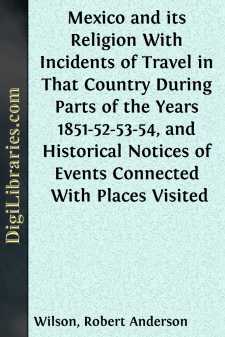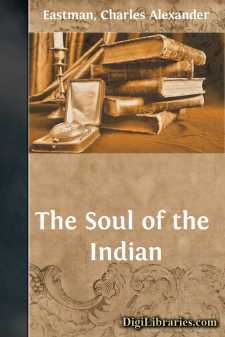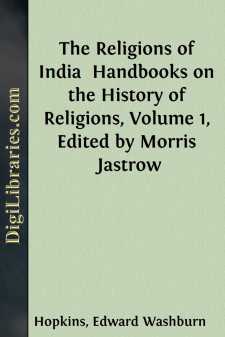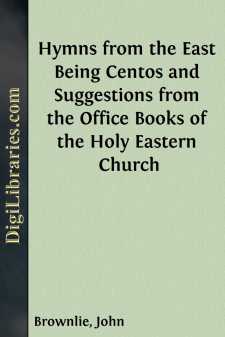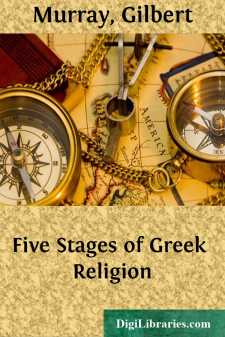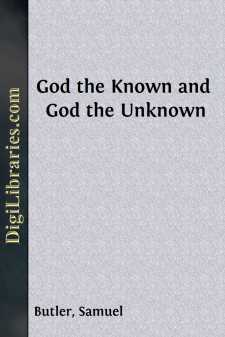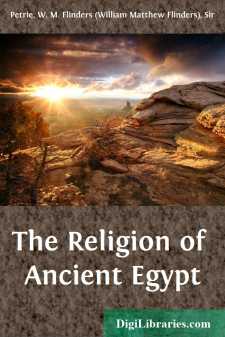Religion
- Agnosticism 2
- Antiquities & Archaeology 21
- Atheism 12
- Biblical Criticism & Interpretation 16
- Biblical Meditations 3
- Biblical Reference 1
- Biblical Studies 11
- Buddhism 8
- Christian Church 52
- Christian Education 5
- Christian Life 26
- Christianity 61
- Cults 2
- Devotional 6
- Eastern 2
- Education 4
- Eschatology 1
- Ethics 3
- General
- Gnosticism 1
- Hinduism 15
- History 28
- Holidays 10
- Inspirational 1
- Islam 8
- Judaism 3
- Leadership 1
- Meditations 3
- Monasticism 1
- Mysticism 11
- Philosophy 4
- Prayer 26
- Prayerbooks 5
- Religion & Science 12
- Sermons 54
- Spirituality 53
- Theism 2
- Theology 17
- Theosophy 15
General Books
Sort by:
The custom of mingling together historical events with the incidents of travel, of amusement with instruction, is rather a Spanish than American practice; and in adopting it, I must crave the indulgence of those of my readers who read only for instruction, as well as of those who read only for amusement. The evidence that I have adduced to prove that the yellow fever is not an American, but an African...
more...
CHAPTER XII. THE BEGINNING OF THE END. Nor was it unnatural that it should be. Moral precepts, philosophic guidance were no longer possible to one whose compliances or whose timidity had led him so far as first to sanction matricide, and then to defend it. He might indeed be still powerful to recommend principles of common sense and political expediency, but the loftier lessons of Stoicism, nay, even...
more...
FOREWORD "We also have a religion which was given to our forefathers, and has been handed down to us their children. It teaches us to be thankful, to be united, and to love one another! We never quarrel about religion." Thus spoke the great Seneca orator, Red Jacket, in his superb reply to Missionary Cram more than a century ago, and I have often heard the same thought expressed by my...
more...
CHAPTER I.—INTRODUCTION. SOURCES.—DATES.—METHODS OF INTERPRETATION.—DIVISIONS OF SUBJECT. SOURCES. India always has been a land of religions. In the earliest Vedic literature are found not only hymns in praise of the accepted gods, but also doubts in regard to the worth of these gods; the beginnings of a new religion incorporated into the earliest records of the old. And later, when, about 300...
more...
by:
John Brownlie
INTRODUCTION Critics are of three classes:—the laudatory, who, if they see anything to complain of, make no complaint; the severe, who, if they see anything deserving commendation, say nothing about it; and the discriminating, who see both and say it, and at the same time throw out hints which as a rule are both acceptable and helpful. Particularly is this the case when the advice tendered confirms a...
more...
by:
John Brownlie
INTRODUCTION This fourth series of Hymns from the Office Books of The Holy Eastern Church, differs from the preceding three in this, that the hymns are less translations or renderings, and more centos and suggestions. One cannot continue long to interest himself in any work, and receive from time to time the observations and criticisms of his fellows, without, if he have his eyes and mind open to...
more...
by:
Gilbert Murray
SATURNIA REGNA Many persons who are quite prepared to admit the importance to the world of Greek poetry, Greek art, and Greek philosophy, may still feel it rather a paradox to be told that Greek religion specially repays our study at the present day. Greek religion, associated with a romantic, trivial, and not very edifying mythology, has generally seemed one of the weakest spots in the armour of those...
more...
by:
Samuel Butler
CHAPTER I. INTRODUCTION MANKIND has ever been ready to discuss matters in the inverse ratio of their importance, so that the more closely a question is felt to touch the hearts of all of us, the more incumbent it is considered upon prudent people to profess that it does not exist, to frown it down, to tell it to hold its tongue, to maintain that it has long been finally settled, so that there is now no...
more...
CHAPTER I THE NATURE OF GODS Before dealing with the special varieties of the Egyptians' belief in gods, it is best to try to avoid a misunderstanding of their whole conception of the supernatural. The term god has come to tacitly imply to our minds such a highly specialised group of attributes, that we can hardly throw our ideas back into the more remote conceptions to which we also attach the...
more...
The unhappy Flemish people, who are at present much in the lime-light, because of the invasion and destruction of their once smiling and happy little country, were of a character but little known or understood by the great outside world. The very names of their cities and towns sounded strangely in foreign ears. Towns named Ypres, Courtrai, Alost, Furnes, Tournai, were in the beginning of the invasion...
more...


